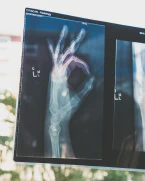The Science Behind Proper Handwashing: Why It Matters and How It Can Save Your Life

The link between singing happy birthday and saving lives
As surprising as it may seem, singing “Happy Birthday” could save your life. In a recent TEDx talk, an emergency physician shared his expertise on the importance of proper handwashing and its role in preventing the spread of infections.
Germs are everywhere and, as the speaker highlights, we come into contact with about 60,000 of them every day. They are invisible, silent, and on everything we touch, including our own bodies. The eyes, nose, and mouth are the main pathways of entry for most germs into our bodies.
Hands are the main source of infection transmission, with approximately 80% of all infections spread by hands. This is because we tend to touch our faces around 16 times an hour, providing ample opportunities for germs to enter our bodies.
But what can we do to stay healthy? The answer is simple: wash our hands properly. While most of us wash our hands, we may not be doing it correctly. In fact, half of the people who claim to have washed their hands after using the bathroom are lying, according to the speaker. Furthermore, only 5% of those who do wash their hands do it correctly.
The speaker demonstrates the effectiveness of proper handwashing with the use of a fluorescent microscopic particle called GermGlo. He shows that a quick rub under the faucet is not enough to remove germs from our hands. Instead, we need to lather our hands with soap or use an alcohol rub for at least 20 to 30 seconds, which is the time needed to fully immobilize and kill germs.
So why sing “Happy Birthday”? The speaker explains that it takes approximately 20 to 30 seconds to sing the song twice, which is the optimal duration for handwashing. By doing so, we can fully immobilize and kill germs by disrupting their cellular membrane.
Proper handwashing not only prevents us from getting sick but also helps prevent the spread of antibiotic resistance. By washing our hands correctly, we can leverage 175 years of science to improve our health and well-being.
In conclusion, washing our hands properly is a simple yet effective way to prevent the spread of infections and save lives. So next time you use the bathroom or come into contact with germs, remember to sing “Happy Birthday” and wash your hands thoroughly.
The risks of not washing hands properly
Proper handwashing is a critical step in preventing the spread of infections and illnesses. Unfortunately, not everyone takes this simple action seriously, and the risks of not washing hands properly can be severe.
In a recent TEDx talk, an emergency physician emphasized the importance of washing hands properly and dispelled the misconception that it is unnecessary. The speaker explained that hands are the main source of infection transmission, with approximately 80% of all infections spread by hands.
The risks of not washing hands properly can lead to getting sick, spreading germs to others, and contributing to antibiotic resistance. The latter is a significant public health threat that arises when bacteria become resistant to the antibiotics designed to kill them.
The speaker explained that washing our hands correctly can help prevent antibiotic resistance. When we wash our hands properly, we remove germs from our skin, reducing the risk of bacterial infections. This, in turn, reduces the need for antibiotics and helps prevent the development of antibiotic-resistant bacteria.
However, the misconception that washing hands properly is unnecessary still persists. Some people believe that washing hands too often will weaken their immune system or make them more prone to allergies. But, as the speaker points out, the science says otherwise. Washing our hands correctly can actually improve our health and well-being.
So, how can we ensure that we are washing our hands correctly? The speaker demonstrates that simply running our hands under water and using a quick rub of alcohol gel is not enough to remove germs effectively. Instead, we should lather our hands with soap for at least 20 to 30 seconds, making sure to wash all parts of our hands, including between our fingers and under our nails.
In conclusion, washing our hands properly is crucial in preventing the spread of infections and illnesses, contributing to the prevention of antibiotic resistance, and improving our overall health and well-being. By taking the time to wash our hands correctly, we can all do our part in protecting ourselves and others from the risks of not washing hands properly.
The science behind washing hands properly
Washing our hands regularly is essential in preventing the spread of infections and illnesses. However, not all handwashing techniques are created equal. In a recent TEDx talk, an emergency physician shared his expertise on the science behind washing hands properly and why it matters.
The speaker explained that germs are everywhere, and we come into contact with approximately 60,000 of them every day. They are silent, invisible, and on everything we touch, including our own bodies. The main pathway for germs to enter our bodies is through our eyes, nose, and mouth, and our hands are the main source of infection transmission.
Washing our hands properly involves using soap and water to remove dirt, grime, and germs from our hands. But, it is not just a matter of quickly running our hands under water and using a splash of soap. We need to ensure that we wash all parts of our hands, including our palms, the back of our hands, between our fingers, our cuticles, and our fingernails.
The speaker emphasized that the optimal duration for handwashing is at least 20 to 30 seconds. This may seem like a long time, but it is the necessary duration to fully immobilize and kill germs by disrupting their cellular membrane.
To demonstrate the effectiveness of proper handwashing, the speaker used a fluorescent microscopic particle called GermGlo. He showed how quickly germs can spread and how a quick rub under the faucet is not enough to remove germs from our hands. Instead, we need to lather our hands with soap or use an alcohol rub for at least 20 to 30 seconds to ensure that we remove all germs from our hands.
Proper handwashing is not only essential in preventing the spread of infections and illnesses but also contributes to the prevention of antibiotic resistance. By removing germs from our hands, we reduce the need for antibiotics and help prevent the development of antibiotic-resistant bacteria.
In conclusion, washing our hands properly is a critical step in maintaining our health and preventing the spread of infections and illnesses. By understanding the science behind washing hands properly, we can ensure that we are washing all parts of our hands for the optimal duration and doing our part to protect ourselves and others.
The benefits of proper handwashing in preventing illness
Proper handwashing is one of the most effective ways to prevent the spread of infections and illnesses. In a recent TEDx talk, an emergency physician shared his expertise on the importance of washing our hands properly and its benefits in preventing illness.
The speaker explained that germs are everywhere, and we come into contact with about 60,000 of them every day. They are invisible, silent, and on everything we touch, including our own bodies. The main pathway for germs to enter our bodies is through our eyes, nose, and mouth, and our hands are the main source of infection transmission.
Proper handwashing involves using soap and water to remove dirt, grime, and germs from our hands. However, the speaker emphasized that it is not just a matter of quickly running our hands under water and using a splash of soap. We need to ensure that we wash all parts of our hands, including our palms, the back of our hands, between our fingers, our cuticles, and our fingernails.
The speaker demonstrated the effectiveness of proper handwashing with the use of a fluorescent microscopic particle called GermGlo. He showed that a quick rub under the faucet is not enough to remove germs from our hands. Instead, we need to lather our hands with soap or use an alcohol rub for at least 20 to 30 seconds to ensure that we remove all germs from our hands.
In addition to washing our hands properly, the speaker also emphasized the importance of avoiding touching our faces. Our hands can easily transfer germs from surfaces to our faces, providing an easy pathway for germs to enter our bodies.
The speaker shared his personal experience with proper handwashing in a high-risk environment. As an emergency physician, he comes into contact with thousands of germs every day. However, he has not been sick in years because he washes his hands properly and frequently.
In conclusion, proper handwashing is a critical step in preventing the spread of infections and illnesses. By washing our hands correctly, we can remove germs from our hands, reduce the risk of getting sick, and contribute to the prevention of antibiotic resistance. By avoiding touching our faces, we can further reduce the risk of germs entering our bodies. By following these simple steps, we can all do our part in preventing illness and promoting good health.
Conclusion
Proper handwashing is a critical step in preventing the spread of infections and illnesses. Germs are everywhere, and we come into contact with them every day. Our hands are the main source of infection transmission, and we need to ensure that we wash them properly to reduce the risk of getting sick and spreading germs to others.
The science behind washing our hands properly is simple but effective. We need to use soap and water to remove dirt, grime, and germs from all parts of our hands, including our palms, the back of our hands, between our fingers, our cuticles, and our fingernails. The optimal duration for handwashing is at least 20 to 30 seconds, which is the time needed to fully immobilize and kill germs by disrupting their cellular membrane.
In addition to washing our hands properly, we also need to avoid touching our faces. Our hands can easily transfer germs from surfaces to our faces, providing an easy pathway for germs to enter our bodies.
The benefits of proper handwashing are numerous. By washing our hands correctly, we can remove germs from our hands, reduce the risk of getting sick, and contribute to the prevention of antibiotic resistance. By following these simple steps, we can all do our part in preventing illness and promoting good health.
So, the next time you use the bathroom, come into contact with germs, or simply want to maintain good hygiene, remember to wash your hands properly and avoid touching your face. By doing so, you can help prevent the spread of infections and illnesses and promote good health and well-being for yourself and those around you.













